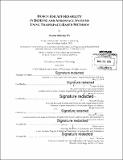| dc.contributor.advisor | Donna H. Rhodes and Daniel F. Hastings. | en_US |
| dc.contributor.author | Wu, Marcus Shihong | en_US |
| dc.contributor.other | Massachusetts Institute of Technology. Technology and Policy Program. | en_US |
| dc.date.accessioned | 2014-09-19T21:29:44Z | |
| dc.date.available | 2014-09-19T21:29:44Z | |
| dc.date.copyright | 2014 | en_US |
| dc.date.issued | 2014 | en_US |
| dc.identifier.uri | http://hdl.handle.net/1721.1/89937 | |
| dc.description | Thesis: S.M., Massachusetts Institute of Technology, Department of Aeronautics and Astronautics, 2014. | en_US |
| dc.description | Thesis: S.M. in Technology and Policy, Massachusetts Institute of Technology, Engineering Systems Division, Technology and Policy Program, 2014. | en_US |
| dc.description | Cataloged from PDF version of thesis. | en_US |
| dc.description | Includes bibliographical references (pages 262-270). | en_US |
| dc.description.abstract | Program failures have plagued the defense and aerospace industry for decades, as unanticipated cost and schedule overruns have rendered the development of systems ineffective in terms of time and cost considerations. This raises the need to holistically include performance, cost and schedule considerations during the early-phase design of systems to perform valuable tradeoffs that derive more feasible and affordable solutions. This paradigm is the design for affordability. This design for affordability conundrum is targeted at defense and aerospace systems, which have complex mission requirements and stakeholder involvement that are susceptible to changes and perturbations over time. Without a systematic framework, the design for affordability process can potentially become cognitively challenging to system architects and lead to unsatisfactory results. To resolve affordability, it can first be defined as the property of becoming or remaining feasible relative to resource needs and resource constraints over time. Affordability can then be treated as an ility that drives the design of more affordable yet technically sound architectures. Tradespace-based methods are introduced to drive affordability and incorporate these holistic considerations into the design process. They facilitate the systematic and disciplined search for affordable solutions to the system, program and portfolio of interest. Multi-Attribute Tradespace Exploration (MATE), Epoch-Era Analysis (EEA) and the Multi-Attribute Expense (MAE) function were modified for affordability analysis. Their feasibility was demonstrated through application to two design case studies. Results from both case studies demonstrated the dynamic tradeoffs among performance, cost and schedule parameters. Tradespace-based methods can thus be applied to the progressive design of systems, programs and portfolios using either a bottom-up or top-down approach to deliver affordable solutions in these cases. Affordability is not only an engineering problem; it is also a policy and management problem. Therefore, affordability can be approached through perspectives beyond engineering design. New policies and refined management practices can be used alongside tradespace-based methods for affordability analysis to ensure the continued delivery of affordable systems for the future. | en_US |
| dc.description.statementofresponsibility | by Marcus Shihong Wu. | en_US |
| dc.format.extent | 310 pages | en_US |
| dc.language.iso | eng | en_US |
| dc.publisher | Massachusetts Institute of Technology | en_US |
| dc.rights | M.I.T. theses are protected by copyright. They may be viewed from this source for any purpose, but reproduction or distribution in any format is prohibited without written permission. See provided URL for inquiries about permission. | en_US |
| dc.rights.uri | http://dspace.mit.edu/handle/1721.1/7582 | en_US |
| dc.subject | Aeronautics and Astronautics. | en_US |
| dc.subject | Engineering Systems Division. | en_US |
| dc.subject | Technology and Policy Program. | en_US |
| dc.title | Design for affordability in defense and aerospace systems using tradespace-based methods | en_US |
| dc.type | Thesis | en_US |
| dc.description.degree | S.M. | en_US |
| dc.description.degree | S.M. in Technology and Policy | en_US |
| dc.contributor.department | Massachusetts Institute of Technology. Department of Aeronautics and Astronautics | |
| dc.contributor.department | Massachusetts Institute of Technology. Engineering Systems Division | |
| dc.contributor.department | Technology and Policy Program | |
| dc.identifier.oclc | 890123541 | en_US |
